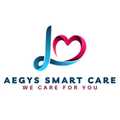|
We are working within the government guidelines to help protect our staff and clients. At Aegys Smart Care we ensure all our staffs are giving: - Aegys Smart Care Back Packs which contains, Gloves, Apron, Face mask, Shoe covering,
Policy Statement
Infection control is the name given to a wide range of policies, procedures and techniques intended to prevent the spread of infectious diseases among staff, people who use services and communities. All of the staff working in a domiciliary care service are at risk of infection or of spreading infection, especially if their role brings them into contact with blood or bodily fluids such as urine, faeces, vomit or sputum. Such substances may well contain pathogens which can be spread if staff do not take adequate precautions.
This care organisation understands that adherence to strict guidelines on infection control is of paramount importance in ensuring the safety of both people receiving care and staff. It also believes that cleanliness of premises and good, basic hygiene is the most powerful weapon against infection.
Communicable diseases refer to a range of diseases that can be spread from one person to another. Diseases are described as “healthcare-associated infections” where they are contracted as a result of care or treatment.
Communicable diseases are the responsibility of Public Health and are managed by local health protection teams.
The service aims through this policy to ensure that:
people who use services, their families and staff are as safe as possible from acquiring infections from any source
all care staff are aware of and put into practice the basic principles of infection control.
Adherence to strict guidelines on infection control is of paramount importance in ensuring the safety of people receiving care and staff. Good, basic hygiene is the most powerful weapon against infection, particularly with respect to cleaning and handwashing.
The organisation works in collaboration with all local infection control agencies to maintain the highest standards of infection control at all times and ensure that, as far as is reasonably practicable, people who use services and staff are protected from the spread of infection at all times.
Legal Considerations
This care service will adhere to all relevant legislation, including:
the Health and Safety at Work, etc Act 1974
the Public Health Infectious Diseases Regulations 1988
the Control of Substances Hazardous to Health Regulations 2002 (COSHH).
Under the above legislation, and associated codes of practice, the care service understands its legal and moral duty to ensure the health and safety of both staff and people receiving care and to protect them, wherever practicable, from dangerous substances in the workplace, including the risk of transmission of infections.
In addition to the above, the home must also comply with the Reporting of Incidents, Diseases and Dangerous Occurrences Regulations 2013 (RIDDOR). These place a duty on the care provider to report outbreaks of certain diseases as well as accidents such as needle-stick accidents.
Regulation
This domiciliary care organisation recognises that it must comply with the Health and Social Care Act 2008 (Regulated Activities) Regulations 2014 in order to meet its legal requirement for registration with the Care Quality Commission (CQC).
With respect to infection control, the organisation understands that a range of regulations may apply, including:
Regulation 12: Safe care and treatment — this requires providers to assess the risk of, and prevent, detect and control the spread of, infections, including those that are healthcare-associated
Regulation 15: Premises and Equipment — this states that premises and equipment must be clean, suitable for the purpose for which they are being used, properly used and properly maintained
Guidance for Providers on Meeting the Regulations, published by the CQC in March 2015, provides guidance on how this service should comply with the regulations.
Guidance This agency seeks at all times to comply with evidence-based best practice in infection control, particularly with the Health and Social Care Act 2008 Code of Practice on the Prevention and Control of Infection and Related Guidance published by the Department of Health and Social Care (the Hygiene Code).
Compliance with this guidance is an effective way to help it to meet its regulatory requirements with the Care Quality Commission under the Health and Social Care Act 2008 (Regulated Activities) Regulations 2014, particularly the infection control provisions in Regulation 12: Safe Care and Treatment.
In addition, the agency will comply with all other relevant best practice infection control guidance.
For instance, applicable guidance from the National Institute for Health and Care Excellence (NICE) includes:
CG139: Healthcare-associated Infections: Prevention and Control in Primary and Community Care (updated February 2017)
PH36: Healthcare-associated Infections: Prevention and Control (November 2011).
Specialist advice and support will be obtained from the local public health protection team.
Infection Control Responsibilities
Rosemond Thomas is the infection control lead for the organisation.
Rosemond Thomas is responsible for infection control risk assessment and staff training.
Staff are required to make infection control a key priority and to act at all times in a way that is compatible with safe, modern and effective infection control practice.
Managers and supervisors are responsible for ensuring that staff working in the homes of people receiving care have access to sufficient facilities and supplies of appropriate equipment to ensure that they can implement effective infection control procedures and techniques.
Any staff who do not feel they have access to sufficient facilities and supplies of appropriate equipment to ensure that they can implement effective infection control procedures and techniques have a duty to inform their line manager or supervisor.
Covid-19 Infection and Prevention Measures
This domiciliary care organisation will comply fully with all official public health guidance and restrictions introduced as part of the national response to the Covid-19 coronavirus pandemic. The organisation is aware that a range of infection prevention and control measures have been required. At various points in the pandemic these have included a requirement for infected persons to self-isolate themselves, increased hygiene measures and enhanced environmental cleaning, particularly the regular cleaning of frequently touched surfaces. In adult social care settings, due to the vulnerability of people receiving care, there have also been additional requirements for the wearing of personal protective equipment (such as face masks), etc.
In this organisation all staff are required to comply with official Covid-19 guidance, including Infection Prevention and Control in Adult Social Care: Covid-19 Supplement, published in March 2022 by the Department of Health and Social Care. Staff should read the guidance and keep themselves updated with changes as they occur.
Additional guidance can be found in the DHSC resource, Covid-19 PPE Guide for Adult Social Care Services and Settings, published in October 2022.
All staff are required to comply with formal Covid-19 restrictions and to keep themselves updated with changes as they occur.
This organisation believes that general adherence to high standards of infection prevention and control is the best way to prevent the person-to-person spread of pathogens such as coronavirus and maximise the safely of staff, people receiving care and their families. To achieve this the organisation’s infection control policies and procedures will be implemented in full, especially those related to effective hand hygiene, sanitisation and environmental cleaning.
Care managers and supervisory staff should make sure that people:
cover their mouth and nose with a tissue or their sleeve (not their hands) when they cough or sneeze put used tissues in the bin immediately
wash their hands with soap and water regularly for 20 seconds and use hand sanitiser gel (at least 60% alcohol) if soap and water are not available
try to avoid close contact with people who are unwell
avoid touching their eyes, nose, and mouth with unwashed hands
wear face coverings, masks and personal protective equipment (PPE) as required
clean and disinfect frequently touched objects and surfaces.
Staff should comply fully with hand sanitisation policies and procedures. Managers will ensure that policies are supported by the provision of appropriate resources such as hand sanitiser gels that contain at least 60% alcohol for home care staff.
The advice should be passed on to people receiving care. It is important that care staff adhere to high standards of infection control practice while in people who use services’ homes and that they ask them to do so too. Regular cleaning of frequently touched hard surfaces with a suitable disinfectant and cleanser should be carried out.
This organisation will comply fully with all existing infection control and prevention guidance, including the Health and Social Care Act 2008: Code of Practice on the Prevention and Control of Infections.
Effective Handwashing
The home care agency believes that, consistent with modern infection control evidence and knowledge, handwashing is the single most important method of preventing the spread of infection.
The majority of cross-infection or infection spread in a care setting is caused by unwashed or poorly washed hands, which provide a transfer route for microorganisms.
All staff should therefore ensure that their hands are thoroughly washed and dried:
between seeing every person who uses services where direct contact is involved, no matter how minor the contact
after handling any body fluids or waste or soiled items
after handling specimens
before putting on personal protective equipment (PPE) and after removing it
after using the toilet
after blowing their nose
before handling foodstuffs.
This organisation is aware that, in domiciliary care, hand washing can be difficult if staff are placed in a setting that lacks hygienic facilities. In such cases, managers must assess the risks and do the best they can to introduce adequate facilities which allow acceptable levels of hand hygiene.
Antiseptic Alcohol Rubs and Gels
Ordinary soap is considered to be perfectly effective for routine use in removing dirt and reducing levels of transient microorganisms on the skin to acceptably safe levels. However, also available for additional hand hygiene use are antiseptic rubs and sanitiser gels.
Hand rubs are anti-microbial preparations and sanitising gels applied to the hands to reduce the number of viable microorganisms present. Hand rubs are usually alcohol-based and come in a variety of dispensers and tubes. Gels and rubs containing 60–80% alcohol are most effective in killing microorganisms.
In this organisation home care staff will be provided with portable alcohol hand rubs which they should take with them during any home visits. These should be used in situations where adequate handwashing facilities are unavailable. They can also be used for additional hand hygiene.
Additionally, hand gels will be provided in washrooms and at entrances and exits in the agencies’ offices.
Importantly, antiseptic hand rubs are less effective where hands are visibly soiled. If hands are soiled the dirt should be washed off first. After hand rubbing or handwashing staff should let their hands dry completely.
Cleaning and Procedures for the Cleaning of Spillages
Staff must treat every spillage of body fluids or body waste as quickly as possible and as potentially infectious. They should wear protective gloves and aprons and use disposable wipes wherever possible. Eye protection should also be used if there is risk of splashing.
(Staff should note that chlorine releasing disinfectants such as hypochlorite should never be used directly on urine spills as this can release irritant chlorine gas. Urine should be cleaned up using towels and the area cleaned with detergent before applying disinfectant.
Soft furnishings (eg carpets) may be damaged by disinfectant products such as sodium hypochlorite. The Health and Safety Executive (HSE) recommends that contaminated carpets that cannot tolerate chemical disinfection should be cleaned using a detergent and steam cleaned.
When using chlorine releasing agents, staff should always follow the manufacturer’s guidelines. In this organisation, all such procedures should be subject to an appropriate COSHH risk assessment.
Mops and buckets should never be used for cleaning up body fluid spills.)
The Handling and Disposal of Clinical and Soiled Waste
All clinical waste should be disposed of in such a way that is compliant with the law and with locally agreed arrangements and protocols.
Waste that may be hazardous, such as sharps and clinical waste, should not be disposed of in standard waste.
Non-clinical waste should be disposed of in normal black plastic bags.
The Use of Personal Protective Equipment (PPE) and Clothing
Adequate and suitable personal protective equipment (PPE) and clothing is provided.
All staff should who are at risk of coming into direct contact with body fluids or who are performing personal care tasks must use disposable gloves and disposable aprons.
The responsibility for ordering and ensuring that supplies of gloves and aprons are readily available and accessible lies with Rosemond Thomas.
Any member of staff who suspects that they or a person receiving care might be suffering from an allergic reaction to the latex gloves provided should stop using them immediately and inform their line manager. They should then consult their GP.
In this home care organisation, during the Covid-19 pandemic all use of PPE for infection prevention and control purposes will be based on the latest guidance, Infection Prevention and Control in Adult Social Care: Covid-19 Supplement (2022). The guidance sets out PPE requirements in a variety of common scenarios in different care settings, including home care. It was updated in December 2022 when new flexibilities relating to the wearing of face masks were introduced.
Additional guidance can be found in the DHSC resource, Covid-19 PPE Guide for Adult Social Care Services and Settings, published in October 2022 and updated in December 2022. The resource is provided for staff as a leaflet describing which PPE they should wear depending on where and how they are working.
According to the supplementary guidance, in situations when caring for a person who is not suspected or confirmed to be infected with Covid-19, the following is advised.
During social contact with clients, other staff or family members, staff are advised that no PPE is required. They are also not required to wear PPE for tasks not involving contact with blood or body fluids (eg moving clean linen, tidying, giving medication, writing in care notes, etc).
During care or domestic tasks involving likely contact with blood or body fluids (eg giving personal care, handling soiled laundry, emptying a catheter or commode) staff are advised to wear gloves and an apron. They should also risk assess the situation and wear a mask as required. A Type IIR mask should be used where splashing is likely, as well as eye protection.
During general cleaning with hazardous products (disinfectants or detergents) staff are also advised to carry out a risk assessment and to wear the PPE indicated. Staff should wear a mask, eye protection, gloves and an apron if indicated in the risk assessment or if recommended by the cleaning product manufacturer. A Type IIR mask should be used where splashing is likely.
In situations when caring for a person who is suspected or confirmed to be infected with Covid-19 (symptoms may include coughing, sneezing, diarrhoea, vomiting, shortness of breath, temperature), the following is advised.
When giving personal care to a person with suspected or confirmed Covid-19 staff are advised to wear a type IIR mask (which they should remove on leaving the area) and disposable gloves, a disposable apron and eye protection.
During general cleaning duties in the room where a person with suspected or confirmed Covid-19 is being isolated or cohorted (even if more than 2m away) staff are advised to wear a type IIR mask (which they should remove on leaving the area) and disposable gloves, a disposable apron and eye protection.
For tasks other than those listed above, when within 2m of a person with confirmed or suspected Covid-19, staff are advised to wear a type IIR mask (which they should remove on leaving the area), disposable gloves (if contact with blood or body fluids is likely), a disposable apron (if contact with blood or body fluids is likely) and eye protection.
In this organisation, homecare workers are required to remove their masks when leaving the home of the person they are caring for and wear a new mask when entering different people’s homes.
Note that:
type I and type II masks are not considered PPE and are worn to provide “source control” — that is, to protect others from the wearer’s respiratory droplets should they have asymptomatic Covid-19 infection
type IIR fluid-repellent surgical masks protect the wearer by providing a fluid repellent barrier between the wearer and the environment — this protects the wearer against blood or body fluid splashes and against the respiratory droplets of others reaching their mouth and nose
face masks of all types can be used for “source control” and can be worn “sessionally”, that is for a maximum of four hours, unless the worker is providing personal care or cleaning the room of someone with suspected or confirmed Covid-19 or is carrying out an AGP.
For PPE to be effective, it is important that staff use it properly and follow instructions for putting it on (donning) and taking it off (doffing). These will be explained in training and displayed around the home. All used PPE should also be disposed of appropriately according to the homes waste management policy.
All care staff should read the organisation’s policy and procedure for using PPE safely and effectively.
The Handling and Storage of Specimens
Specimens should be collected only if ordered by a GP.
All specimens should be treated with equally high levels of caution.
Specimens should be labelled clearly and packed into self-sealing bags before being taken to the doctors.
Non-sterile gloves should be worn when handling the specimen containers and hands should be washed afterwards.
The Disposal of Sharps (eg Used Needles and Ampoules)
The organisation complies fully with the Health and Safety (Sharp Instruments in Healthcare) Regulations 2013 and associated guidance from the HSE, according to which the unnecessary use of medical sharps should be avoided wherever possible.
Where sharps are used, “safer sharps” are employed wherever possible, such as safer syringes, etc.
Sharps — typically needles or blades — are disposed of in proper, purpose-built sharps disposal containers complying with BS 7320.
Sharps are never disposed of in ordinary or clinical waste bags.
Staff should never resheath needles.
Boxes should never be overfilled.
When full, boxes should be sealed, marked as hazardous waste and clearly labelled with the individual’s details.
Staff should never attempt to force sharps waste into an overfilled box.
Used, filled boxes should be stored securely until collected for incineration according to individual arrangements.
In the event of an injury with a used or potentially contaminated needle:
staff should wash the area immediately and encourage bleeding if the skin is broken
staff should report the injury to their line manager immediately and ensure that an incident form is filled in
staff should make an urgent appointment to see a GP or, if none is available, Accident and Emergency
managers should record and investigate the incident and ensure that the member of staff is offered appropriate “post-exposure prophylaxis” and counselling as required.
Preventing and Controlling Cross-Contamination from Electronic Device Handling
With the increasing use of key-board based computers and portable electronic devices such as smart phones and touch pads as care practice tools, research shows that there is a relatively low but identifiable risk of cross-infection from the collection and transmission of bacteria and micro-organisms on and from these devices that require risk assessing and controlling. There will be clearly greater risks of cross-contamination from their use in environments where the risks of contamination are also higher such as with incidence of infectious illness, for example.
The service adopts a common-sense approach to the prevention and control of possible cross infection from the use of electronic devices in the course of daily work, which is consistent with other infection control measures. These are:
To ensure effective handwashing procedures are followed, which will reduce the risk of contamination on to the device.
To keep the device suitably covered when not in use with either an easily disposable plastic cover or cover that can be easily wiped after each use or similar protective materials, depending on the type of device used. (Here it should be noted that any cover could also run the risk of contamination).
Regular eg daily cleaning of the device, or after use in high risk situations, usually by wiping with a suitable cloth, which is usually sufficient, or such as an alcohol based wipe — taking into account the vulnerability of the product to be damaged by the cleaning methods adopted, and always following many manufacturer’s instructions.
Where necessary, eg in high risk situations the device user will be encouraged to set alerts to remind them of the necessity to keep their devices clean.
All staff will be expected to keep their devices and equipment used in service delivery as clean and free from infection as possible in line with this policy.
In very high risk situations and circumstances, the service might stop the use of electronic devices to help deliver care to cut out any contribution they might make to the spread of any infections or infectious illnesses; though this measure is likely to be rare.
Reporting
RIDDOR requires an organisation to report the outbreak of notifiable diseases to the HSE. Notifiable diseases include: cholera, food poisoning, smallpox, typhus, dysentery, measles, meningitis, mumps, rabies, rubella, tetanus, typhoid fever, viral haemorrhagic fever, hepatitis, whooping cough, leptospirosis, tuberculosis and yellow fever.
Records of any such outbreak must be kept, specifying dates and times and a completed disease report form must be sent to the HSE.
In the event of an incident, Rosemond Thomas is responsible for informing the HSE.
RIDDOR forms are kept here: The Policy station in Aegys Smart Care Office or on BrightHR or Nourish App.
In the event of the suspected outbreak of an infectious disease, the local public health protection team should be contacted immediately.
The HSE has clarified its position regarding RIDDOR reports associated with the coronavirus pandemic. HSE states that the reporting requirements relating to cases of illness or deaths from Covid-19 under RIDDOR apply only to occupational exposure, that is, as a result of a person’s work. There is no requirement under RIDDOR to report incidents of disease or deaths of members of the public, patients or people who use services from Covid-19.
Infection Control Training
All staff will be trained in basic infection prevention and control measures in line with this policy and best practice guidance.
Staff with specific infection control responsibilities are provided with the relevant training for their role, duties and levels of responsibility.
All new staff will be expected to complete induction training which complies with the Care Certificate Framework developed by Skills for Care/Skills for Health.
All training is updated as required by changes of legislation, policy and guidance.
Related Policies
This policy should be read and used in relation to several others dealing with specific infection control issues, including:
AIDS/HIV
Clostridium Difficile
MRSA in Domiciliary Care
Staff Vaccinations and Immunisations in Home Care
Transmissible Spongiform Encephalopathies.
|




















 We are on Facebook
We are on Facebook
